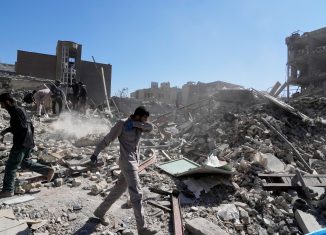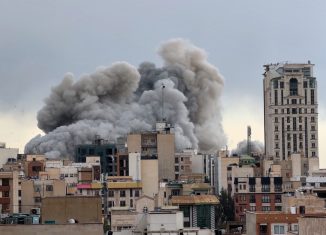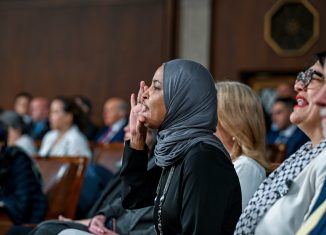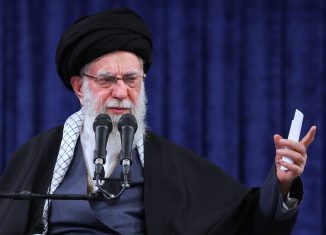Condoleezza Rice, former Secretary of State and author of the new book ďTo Build A Better World: Choices to End the Cold War and Create a Global CommonwealthĒ, spoke with Brian Kilmeade about an unverified story that the U.S. extracted an American spy from inside Russia in 2017, President Trump making the right decision to cancel meeting with the Taliban at Camp David, keeping a military presence in Afghanistan to make sure Afghanistan does not go back to a place that allowed 9/11 to happen and Americaís role in stabilizing Europe.
Plus, Secretary Rice on practicing piano to prepare to perform for the Omaha symphony in May.
Watch here:
BRIAN KILMEADE, FOX HOST: How is your life? We were just outside on ďFox and FriendsĒ and your other passion is football.
CONDOLEEZZA RICE, FORMER U.S. SECRETARY OF STATE: Right.
KILMEADE: Rob Gronkowski, the New England Patriotsí tight end —
RICE: What a thrill to meet Rob Gronkowski —
KILMEADE: He was thrilled to meet you.
RICE: He was fantastic, and we did a little — little hitting the baseball out there, and he showed how hard it is to hit a baseball, but heís a great athlete. And I really — I admire his career. It was just extraordinary.
KILMEADE: Well I mean now when I ask what have you been doing? If you look at this book and you see a thorough — I got it this morning. Iíve already been through 100 pages. Itís fascinating, the play-by-play of the coming down of the Cold War, the Warsaw Pact and the inflation of NATO and all the decisions people had to make. Weíll never see a time like this and I want to get to that, but I first want to ask how are you?
RICE: Iím doing great, Brian I am.
KILMEADE: What is an average day like for you?
RICE: An average day for me is to get up and exercise early. You know I always did that.
KILMEADE: Yes.
RICE: But Iím teaching at Stanford and loving being hopefully influential in the lives of these young people. Iím also doing some business consulting with my friends Robert Gates and Steve Hadley and Anja Manuel and so we help companies that are trying to navigate the complex global environment. Iím doing a little speaking, and Iím also practicing the piano a lot these days. Iím going to play in the gala for the Omaha Symphony in May, so Iím trying to get my chops back.
KILMEADE: So my dad used to play, and he was thinking about going to Julliard and everything like that and when he put it down and became — and went into chemistry and then on to bar, he never wanted to pick it up again. Because he said, ďI know how good I could have beenĒ and it bothered him to pick it up. When you were playing every day, and then you drop off, was it hard to go back and not be as good?
RICE: It was definitely a little hard to go back because I knew I was never going to be as good as I was when I was 18. I was practicing three or four hours a day, but I finally kind of came to terms with that over the years. And Iím pretty good and if I practice, I can be even better and, so the great thing is that Iím taking piano lessons again. I try to practice every day when Iím home, and itís tremendously fulfilling to be able to play this great music.
KILMEADE: And when the Secretary of State says sheís pretty good, that means sheís great because sheíll always — like her former boss Bush 43 will always under — under grade herself.
So I want to talk about a couple of things in the news. This CNN story that they say that the CIA had to extricate a source within higher up in the Vladimir Putin Administration in Russia because they thought the president was going to out the identity to Vladimir Putin. Itís a CNN story that even ďThe New York TimesĒ canít back up, NBC canít verify and the CIA pushed back on. Whatís your reaction?
RICE: Well, my reaction is that thatís not something that you put in a report unless youíre absolutely certain because peopleís lives could be at stake. I can guarantee you that thereíll now be something of a witch hunt inside Russia to try to figure out how this story came about —
KILMEADE: And who it is.
RICE: — who it is, who it might relate to. And so I donít know what sources CNN thought that they had, but Iím glad that the CIA is back out there pushing back, but thatís the kind of story I think get a lot of people in a lot of trouble.
KILMEADE: Right, but itís nonstop with this president. Some is self-inflicted; we get that and others isnít.
RICE: Well, I wills say, Brian, that I — I have come to see that the news media these days is a little overheated on everything. I understand that we have a president who is different. I certainly donít agree with everything that he does. I agree with some things that he does.
Iím more of a traditionalist in the way that I like to see the president communicate, but itís also the case that it does seem that everything that he does initially is a headline about itís the wrong thing. And so if you take for instance, and Iím sure weíre going to talk about it, this decision on Afghanistan. Thatís the right decision because the Taliban thought that they could force us into a bad agreement —
KILMEADE: Nine rounds of talks.
RICE: Nine rounds of talks. I know Zal Khalilzad very well. Heís a great person; a good negotiator. He was ambassador to both Iraq and Afghanistan. Heís Afghan born. But he was given a kind of impossible task which is to find an agreement that was acceptable to us with a group, the Taliban, that wonít even recognize the Afghan government that we have been allies with and sponsored for more than a decade and a half. And so when the president decides, all right, thatís off. Thatís a really good decision.
Now, I might not have communicated it in quite that way but itís still a good decision. So I think we have to start stepping back in trying to judge what the president does on any given day and get away from some of the hype.
KILMEADE: Now 18 years, now 19 years weíve been in Afghanistan. Itís too long; we have war fatigue which is a shame because only 1 percent of the population actually serves in the war. How dare we go to school and work every day, and say weíre tired of it.
But in the end, you (ph) book — you talk about a presence — a military presence in Germany, in South Korea, in Japan. So it is in our active interest to have a military presence there. Am I right?
RICE: You are absolutely right. I know that people say the Afghan war has been inconclusive. For 18 years, weíve been there, when is it going to end? Good question. If it can end on terms that leave a stable Afghanistan, by all means, let’s do that.
But if weíre talking about a relatively small presence of American forces — and I can’t give you a number, the military should give the president a number. A relatively small number of American forces who can stabilize, who can train and equip the Afghan forces, who can do some intelligence missions to make sure that weíre not getting the rise again of an ISIS like we did when we left Iraq. That’s going to be in our interest and for our security.
We have to remember, weíre going to — to look at the anniversary. We’re going to see the anniversary, again, of 9/11 tomorrow. And when we do that, we’re going to have to remember — on Wednesday. And when we do that, we’re going to have to remember that that came out of Afghanistan.
And when that comes out of Afghanistan, we can’t let Afghanistan go back to a place that can do that to us again. And so I understand wanting to be done. I understand wanting to bring the troops home.
I fear that because of all of the talk of wanting to bring the troops home, the Taliban has begun to believe that we want an agreement more than they do. And by President Trump deciding to pull away from this one, maybe now, we’ll see whether they’re serious about negotiations.
KILMEADE: As we look at 9/11, the Taliban in a tape recording in late July said that we got what we deserved.
RICE: Right, and — and the Taliban — we — if you remember in the Bush administration, the first thing we did was to — after 9/11 — was to go to the Taliban and say, Al Qaida is using your territory as a base of operations. Give them up, stop dealing with them.
We didnít say we’re going to take you out tomorrow. We said give them up, we gave them an ultimatum. They wouldnít do it.
That’s when we decided we had to invade Afghanistan and take down the Taliban in order to make Afghanistan safe so that you wouldnít have a safe haven there for terrorists. To have the Taliban back in control would undo all of the good work over several administrations, all the men and women who sacrificed lives, all of the intelligence officers and first responders who counted on us never to have 9/11 happen again.
To my mind, that would be a sad moment and a betrayal of that.
KILMEADE: Do you feel as though we got to this point because out military leaders didnít have the right strategy in Afghanistan and in Iraq?
RICE: Well, Iraq is somewhat of a different circumstance. I think Iraq was stable when we left in 2011. And we had to go back because we didnít enough of a presence there to have the — the political arrangements and the military arrangements that we had fostered, to have them really take hold. So we ended up back there.
Iraq is now at least mostly stable, and we have a good ally there. And by the way, I’d rather it be Iraqi than Syrian; this isnít a government that’s using barrel bombs against its own people.
When you come to Afghanistan, we always knew it was going to be hard. It’s the fifth-poorest country in the world. If you ever fly over Afghanistan, you see that there are just high mountains and dirt, and the terrorists coming in from Pakistan — because part of the problem is Pakistan —
KILMEADE: Is Pakistan, (INAUDIBLE).
RICE: — and the network in Pakistan that is supporting an unstable Afghanistan. So it’s a complicated situation in Afghanistan.
But we can make certain that this is a place that is at least stable. We shouldnít leave until we believe it’s stable.
And the military leaders have been saying to President — said to President Obama, said now to President Trump — let us leave enough forces there to be a stabilizing force, to make sure that the Afghan army is capable.
I know that itís hard but, as you say in the book, to build a better world — that talks about the end of the Cold War, we were in Germany from 1945 until 1990 before Germany unified.
KILMEADE: Right.
RICE: We were in Korea from the Korean Armistice all the way up until now to stabilize the Korean Peninsula. Itís worth it.
KILMEADE: Well, yes. The Russians probably wouldíve come through again —
RICE: Absolutely.
KILMEADE: — had we — even today in 2019, had we not had a presence there and NATO has (INAUDIBLE) their presence, and they have.
This is the story, June 1st, 1990, the President George H. W. Bush. Cut 34.
(BEGIN AUDIO CLIP)
GEORGE H.W. BUSH, FORMER PRESIDENT OF THE UNITED STATES: And the world has waited long enough. The Cold War must end.
And so today, with gratitude in my heart for all those on the Soviet side and the United States side that worked so hard at all levels to bring these agreements to fruition, I say letís renew our pledge and build a more peaceful world.
(END AUDIO CLIP)
KILMEADE: Game on.
RICE: Game on.
KILMEADE: We were very hopeful. And that — that year was 1990.
RICE: Right. It was —
KILMEADE: What changed?
RICE: Well, it was a very hopeful time. We thought that the Soviet Union — which broke up a few months later, but we thought that Russia would be on its way to stable democracy. Obviously, Vladimir Putin has reversed that.
We thought that Germany would unify full and completely within the Western alliance. That has happened. That is a great success story.
We thought that Eastern Europe would be liberated and communism would be dead, democracy would flourish. For the most part, thatís happened. Although, of course, in Poland and Hungary weíve had some backsliding with nationalist —
KILMEADE: Dictators, yes.
RICE: — governments. And — but still, particularly in Poland, itís still —
KILMEADE: Theyíre still voting.
RICE: — a Democratic state. Theyíre still voting.
I think we thought the European Union was only going to get stronger. And if you look at Brexit and you look at all of the pressures on the European Union, that story is not a good one. But still Germany and France will never fight again and that is a tremendous success.
And then finally if you look at the American role in Europe, thatís up to us. Are we going to continue to play a role of stabilization? Are we going to continue to be the defender of free markets and free peoples that weíve been for all of these years? And thatís still up in the air, Iím afraid.
KILMEADE: If you were Secretary of State, would you support now-Prime Minister Boris Johnson and his push to get out of the European Union which the people voted for?
RICE: My view is that weíve got to leave this to the British to resolve. Itís a democracy. They will find it their way.
I personally had hoped that Britain would stay in the European Union and I tell you why. Itís not because I have any great love for the European Commission or even for the European Union. But when the European Union has Britain in it, itís an Atlantic looking Europe. It looks toward us.
If it becomes a European Union without Britain, itís going to be a continental Europe. So thatís why I wouldíve preferred they stay in. But letís leave this to the British people to sort through. I donít think the American Secretary of State needs to be involved in this.
KILMEADE: Theyíre in — but theyíre not doing a good job sorting through it.
RICE: Well, itís their democracy, theyíll figure it out.
KILMEADE: The year is 1991 and one of the great — the reason we have problems with Russia right now, in my mind is because of this. Mikhail Gorbachev through a translator. Cut 36.
(BEGIN AUDIO CLIP)
MIKHAIL GORBACHEV, FORMER GENERAL SECRETARY OF THE COMMUNIST PARTY OF THE SOVIET UNION (THROUGH TRANSLATOR): Compatriots, due to the situation (ph) which has evolved as a result of the formation of the Commonwealth of Independent States, I hereby discontinue my activities at the post of President of the USSR.
(END AUDIO CLIP)
KILMEADE: Listen, I canít do the definitive biography on Mikhail Gorbachev but, man, I was so much more hopeful when he was in charge.
RICE: He was a special man and a special leader. People say, you know, he didnít have any options at the end of the Cold War. He had options. They had 4 million men under arms. They had 30,000 nuclear weapons.
He was asked by his defense minister just before he went out to give that speech. He was — he said will the army stay with me if I try to hold the Soviet Union together? He was told, I canít guarantee that.
He said that would mean civil war; itís not worth it. This is a man who wasnít willing to go through the bloodshed to try to hold the Soviet Union together.
Itís a shame, frankly, that I think Russians donít appreciate him in the way that they should because he shepherded this great power, this behemoth, out of existence in a peaceful way. And we should all be grateful for that.
KILMEADE: Convinced the Ukraine to give up their nuclear weapons in turn for protection. And guess what? Now, they got caught up.
RICE: Thatís right. And the Ukrainians have a beef here, because the international community told them youíll be safe and, of course, Vladimir Putin is taking Crimea.
But all in all, if you think about what George H.W. Bush and Mikhail Gorbachev and Helmut Kohl wanted to do to build a better world, they succeeded in a lot of way. So itís the question of whether we can keep it.
KILMEADE: If you want to put together the puzzle of today, understand what happened in 1990 and leading up to that at the end of the Cold War and building up what we have now. Itís all in ďTo Build a Better World.Ē Itís another masterpiece by Condoleezza Rice and Philip Zelikow, who used to run the World Bank, right?
RICE: Well Philip — Philip was my colleague on the NSC staff at the time that we — we did Germany unification (ph), yes —
KILMEADE: A lot of knowledge. But they donít want to get back into the fray as of right now, weíll see. Madam Secretary, great to see you. Congratulations on the book.
RICE: Thank you.








